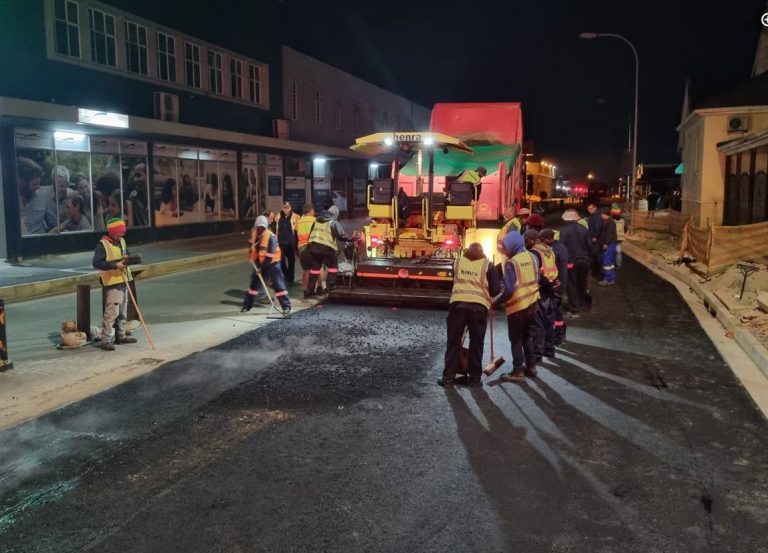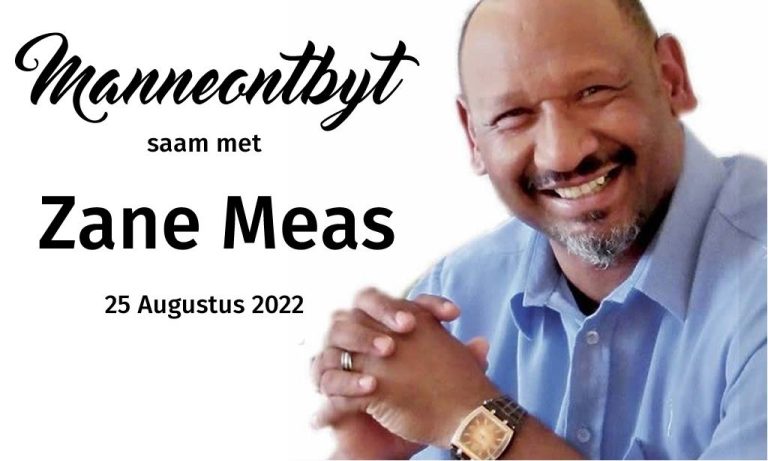
Response to South Africa’s ongoing energy crisis by Pres Ramaphosa.Fellow South Africans,Tonight, I want to address you about the energy crisis that is confronting our nation. During the past three weeks, severe load shedding has disrupted all of our lives and caused immense damage to our economy.The daily power cuts we have been experiencing have inconvenienced millions of households and have presented huge challenges for businesses. After more than a decade without a reliable electricity supply, South Africans are justifiably frustrated and angry.They are fed up. We have therefore developed a set of actions to respond to the crisis.The crisis that we are facing requires that we should take bold, courageous and decisive action to close the electricity gap.This is a call for all South Africans to be part of the solution; to contribute in whatever way they can to ending energy scarcity in South Africa.As government we are announcing a number of interventions to overcome the immediate crisis.In the past 10 days, I have held extensive discussions with the Eskom executive management, power station managers and former Eskom personnel.I have also met with labour federations, Business Unity South Africa, the Black Business Council, community representatives and several experts in the energy sector. This morning, I also met political party leaders.I am grateful for the valuable proposals made by all those we have met.These meetings have helped to shape our response and ensure that all sections of South African society are involved in solving this problem, as this is a national crisis.All the people I have spoken to have said this is the time when the country must unite to address this challenge.The set of additional actions I am announcing this evening:
Firstly, are aimed at improving the performance Eskom’s existing fleet of power stations;
Secondly, will accelerate the procurement of new generation capacity;Thirdly, are intended to massively increase private investment in generation capacity;Fourthly, are designed to enable businesses and households to invest in rooftop solar; and,Finally, are directed at fundamentally transforming the electricity sector and positioning it for future sustainability.Fellow South Africans,For our response to be effective, we need to understand the problem.South Africa has installed capacity to produce approximately 46,000 MW of electricity, and at peak times we use about 32,000 MW of electricity.However, only 60% of this installed capacity is available at any given time due to some units going through planned maintenance and others having unplanned outages.Many of our power stations were built many years ago. The average age of Eskom’s power stations is 35 years. Generally as power stations get older, their performance deteriorates.The construction of our newest power stations, Medupi and Kusile, started late and they have experienced several delays and some design flaws.These challenges are being addressed.As a result of this, Eskom deferred essential maintenance to keep the lights on, which is causing breakdowns and failures now. The performance of some of Eskom’s power stations have been further worsened by extensive theft, fraud and sabotage.After years of state capture and mismanagement, a capable and effective management team is working hard to turn the utility around and reverse years of decay.However, as things stand, we are still faced with an electricity shortage of up to 6,000 MW.In recent weeks, a combination of factors resulted in 18,000 MW of generation capacity being lost, and forced Eskom to implement stage 6 load shedding.Eskom has to implement load shedding to prevent the electricity grid from collapsing, and to ensure that we never experience a complete blackout. The factors that led to the latest load shedding included a number unit breakdowns at some power stations.We also experienced damage to the transmission line from Cahora Bassa in Mozambique and there were also instances reported of deliberate damage to equipment.Teams within Eskom have worked hard to bring generation units back online and stabilise the national grid. As a result of their efforts, the system outlook has improved over the past week.The agreement reached between Eskom and workers has allowed critical repairs to the units that had broken down to be undertaken and normal electricity generation operations to resume.Progress has also been made by law enforcement agencies in tackling sabotage, theft and fraud at Eskom’s power stations and other key installations.While these actions to stabilise electricity generation have brought relief from the current load shedding, the system remains vulnerable and unreliable.The shortage of electricity is a huge constraint on economic growth and job creation. It deters investment and reduces our economy’s competitiveness. As this administration, we have already taken important steps to increase generation capacity and diversify our energy supply.One of the first steps we took to address the electricity shortfall was to revive the renewable energy procurement programme in 2018. Since then, over 2,000 MW of solar and wind power has been connected to the grid through Bid Window 4 of the programme. A further 2,600 MW of capacity has been procured through Bid Window 5, which will begin to add capacity from early 2024.We have started to diversify generation by allowing parties other than Eskom to generate electricity. In June last year, we raised the licensing threshold for new embedded generation projects from 1 MW to 100 MW. This removed the licensing requirement for generation projects up to 100 MW that are connected to the grid. This measure enabled these generators to have the ability to sell electricity to one or more customers, such as factories, mines or data centres.We also changed the regulations to allow municipalities to procure power independently. A number of municipalities are already in the process of doing so. Eskom recently made land available next to its power stations in Mpumalanga for renewable energy projects, which will unlock 1,800 MW of new capacity. Eskom has identified additional land that will be released for this purpose.These actions are significant and they will make a difference over the coming months and years.What the most recent load shedding has made clear, however, is that the actions we have taken and continue to take are not enough.We are therefore implementing additional measures to achieve long-term energy security and end load shedding for good.First, we are fixing Eskom and improving the performance of our existing fleet of power stations. Over time, the maintenance programme of Eskom’s electricity generation fleet has declined.It is now been decided that over the next 12 months, Eskom will increase the budget allocated for critical maintenance to increase the reliability of its generation capacity. We are cutting red tape that has made it difficult for Eskom to buy maintenance spares and equipment within the required period to effect repairs.One of the challenges that Eskom has faced has been the shortage of skilled personnel and engineers. The utility is now recruiting skilled personnel, including former senior Eskom plant managers and engineers from the private sector. These skilled personnel will support various personnel and help to ensure that world-class operating and maintenance procedures are reinstated.Over the next three months, Eskom will take additional actions to add new generation capacity to the grid on an urgent basis. As an immediate measure, surplus capacity will be bought from existing independent power producers.These are power plants which built more capacity than was required and can now supply this excess power to Eskom.As part of addressing the shortage of megawatts, Eskom will now also purchase additional energy from existing private generators such as mines, paper mills, shopping centres and other private entities that have surplus power.A number of our neighbouring countries in Southern Africa, such as Botswana and Zambia, have more electricity capacity than they require.
Eskom will now import power from these countries through the Southern African Power Pool arrangement.Eskom will also use interim power solutions, such as mobile generators, to supplement current generation capacity for a limited period.Eskom will implement a programme that encourages efficient energy use by consumers to reduce demand at peak times.We have spoken in the past about Eskom’s huge debt, which stands at close to R400 billion. The debt continues to be a huge burden on Eskom’s ability to address its many challenges.The National Treasury is working to finalise a sustainable solution to Eskom’s debt. The Minister of Finance will outline how government will deal with this matter in an effective manner when he presents the Medium-Term Budget Policy Statement in October.We will use climate funding provided through the Just Energy Transition Partnership to invest in the grid and repurpose power stations that have reached the end of their lives.Eskom will be constructing its first solar and battery storage projects at Komati, Majuba, Lethabo and several other power stations. These will result in over 500 MW being added to the system.The South African Police Service has set up a special law enforcement team to help Eskom in confronting crime and corruption. A number of people have been arrested in recent days and several others are already being prosecuted for corruption and fraud involving Eskom contracts.With improvements in the regulatory environment and mobilisation of society, Eskom will be well positioned to carry out its maintenance and investment programmes.There can be no longer any excuses.These steps will allow us to limit load shedding to lower stages and reduce the risk of such severe load shedding in future. To end load shedding, however, we need to urgently add much, much more capacity to the grid.Our second priority is therefore to accelerate the procurement of new capacity from renewables, gas and battery storage.The relevant government departments are working together to ensure that all projects from Bid Window 5 of the renewable energy programme can start construction on schedule.This includes taking a pragmatic approach to the local content requirements for these projects, prioritising the need to build new capacity as quickly as possible. The Department of Trade, Industry and Competition together with the Independent Power Producers Office will provide further details in this regard within the coming days.The amount of new generation capacity procured through Bid Window 6 for wind and solar power will be doubled from 2,600 MW to 5,200 MW.We will release a request for proposals for battery storage by September this year, and a further request for gas power as soon as possible thereafterThe Minister of Mineral Resources and Energy will issue a determination for the remaining allocations in the Integrated Resource Plan 2019, and will open further bid windows on an expedited basis. To ensure effective planning, the country’s Integrated Resource Plan is being reviewed to reflect the need for additional generation capacity and our climate commitments.Third, we are accelerating greater private investment in generation capacity.Last year we announced the raising of the licensing threshold to 100 MW. This move was widely welcomed. It has unlocked a pipeline of more than 80 confirmed private sector projects with a combined capacity of over 6,000 MW.We are already working together with industry to accelerate the most advanced projects, several of which are already entering construction.These changes have fundamentally changed the generation landscape.Following the success of this reform and the enthusiasm shown by the private sector, we will remove the licensing threshold for embedded generation completely.This will enable private investment in electricity generation to rise to higher levels.While they will not require licences, all new generation projects will still have to register with the regulator and comply with the technical requirements for grid connection and our environmental legislation.One of our greatest challenges in adding capacity to the grid is the time that it takes for any energy project to receive the necessary approvals and commence construction.The process, from design to commercial operation, has tended to take more than three years due to lengthy regulatory processes and red tape.While existing legislation may be sufficient in ordinary times, the current crisis requires that we act decisively and more speedily.We will therefore be tabling special legislation in Parliament on an expedited basis to address the legal and regulatory obstacles to new generation capacity for a limited period.We raised this matter this morning with leaders of political parties represented in the National Assembly.There was broad agreement that this process should be hastened once the special legislation is tabled in Parliament.We will in the meantime waive or streamline certain regulatory requirements where it is possible to do so within existing legislation. This includes reducing the regulatory requirements for solar projects in areas of low and medium environmental sensitivity.It also means Eskom can expand power lines and substations without needing to get environmental authorisation in areas of low and medium sensitivity and within the strategic electricity corridors.We are also establishing a single point of entry for all energy project applications, to ensure coordination of approval processes across government.I have instructed departments and entities to review all existing time frames and to ensure we process all applications on an urgent basis. These measures are preferable to declaring a state of disaster or even emergency, as some have suggested.These interventions will allow us do what is necessary to accelerate new generation capacity while protecting the rights of all South Africans and upholding the rule of law.We do not need a state of emergency or national disaster to implement common sense regulations that should help in resolving our energy crisis.Fourth, we intend to enable businesses and households to invest in rooftop solar.South Africa has great abundance of sun which we should use to generate electricity. There is significant potential for households and businesses to install rooftop solar and connect this power to the grid.To incentivise greater uptake of rooftop solar, Eskom will develop rules and a pricing structure – known as a feed-in tariff – for all commercial and residential installations on its network.This means that those who can and have installed solar panels in their homes or businesses will be able to sell surplus power they don’t need to Eskom.We call on all South Africans to use electricity sparingly as we work towards ending load shedding and getting more energy on the grid.Finally, we are fundamentally transforming the electricity sector and positioning it for future sustainability.We have spoken in the past about restructuring Eskom, which will result in three entities, namely an electricity generation entity, an electricity transmission entity and an electricity distribution entity.Eskom has established an independent transmission company and is on track to separate its generation and distribution businesses by the end of 2022. We will soon be appointing boards for the transmission and generation entities.Broader reforms to establish a competitive electricity market will be expedited through the finalisation of the Electricity Regulation Amendment Bill to enable private sector investment.These changes will radically transform the structure of the electricity sector for future generations.Many other countries have taken this route and have been able to stabilise electricity generation.They will diversify our energy sources and improve the security of supply.These changes will allow more generators, both private and state-owned, to compete on an equal footing.The grid will remain state-owned.Eskom will continue to be the mainstay of our country’s energy industry as we improve its efficiency, financial sustainability and performance.To ensure that these measures are implemented in a coordinated manner, I have established a National Energy Crisis Committee.The committee is chaired by the Director-General in the Presidency, and brings together all the departments and entities involved in the provision of electricity.The National Energy Crisis Committee will draw on the best available expertise from business, labour, professional engineering entities and community-based organisations. The relevant Ministers will report to me directly on a regular basis to ensure that we move quickly to implement these actions.Fellow South Africans,The measures I have outlined are not just to address our immediate constraints.Our ultimate objective is to achieve long-term energy security, so that we never have to experience an electricity shortage again.We aim to do this by stabilising Eskom and improving plant performance, establishing a competitive electricity market, opening the way for private investment in new generation capacity and increasing our investment in renewables.These measures are necessary to revive economic growth and create jobs.In the process, we will position our country as a leading player in the transition to new and sustainable energy sources, turning this crisis into an opportunity for future growth and resilience.Just as government will play its part, I call on business, labour and all of society to join us in this effort.This includes urgent implementation of the Eskom Social Compact and reinforcing the commitments and concrete steps to be taken by all social partners.Just as we rallied behind the national effort to contain the COVID-19 pandemic, so too must we now contribute wherever we can.As households we can use electricity sparingly.We must pay for services and prevent illegal connections.We must join in a massive rollout of rooftop solar and contribute to the solution.Business needs to reduce its consumption through greater energy efficiency.Business should seize the opportunities that have been created and invest in generation projects.Labour should engage in a spirit of partnership, mindful that achieving energy security is the most important thing we can do to protect existing jobs and create new ones.Last weekend, I visited the Tutuka power station in Mpumalanga, whose performance has been badly affected by criminal activities. We heard of maintenance spares being stolen and sold back to Tutuka and other power stations.We were told of ongoing theft of oil in a massive scale and the deliberate damaging of equipment so that Eskom should hire equipment from private contractors.What is happening at Tutuka and other power stations is deliberate sabotage by well-organised criminal syndicates that are destroying the utility and damaging our economy.After my visit to Tutuka, I met with all of Eskom’s power station managers.I was impressed with the diversity of this group of men and women and their commitment to getting in the right skills and ensuring adherence to a maintenance philosophy.We owe the teams at these power stations a debt of gratitude for their actions. They set a fine example for the rest of us.The measures we are announcing this evening, together with the steps we have already taken, will hasten the end of load shedding.They will put our country on a clear path towards reliable, affordable and sustainable energy supply.If we work together, if we hold each other to account, if we meet our deadlines and fulfil our commitments, we will end the energy crisis and create the conditions for growth and job creation.More than that, we will show that we are up to the challenge of rebuilding our beloved country.I thank you.Issued by The Presidency of the Republic of South Africa



















